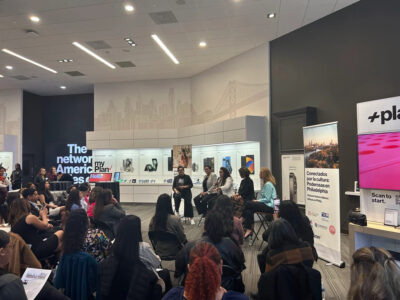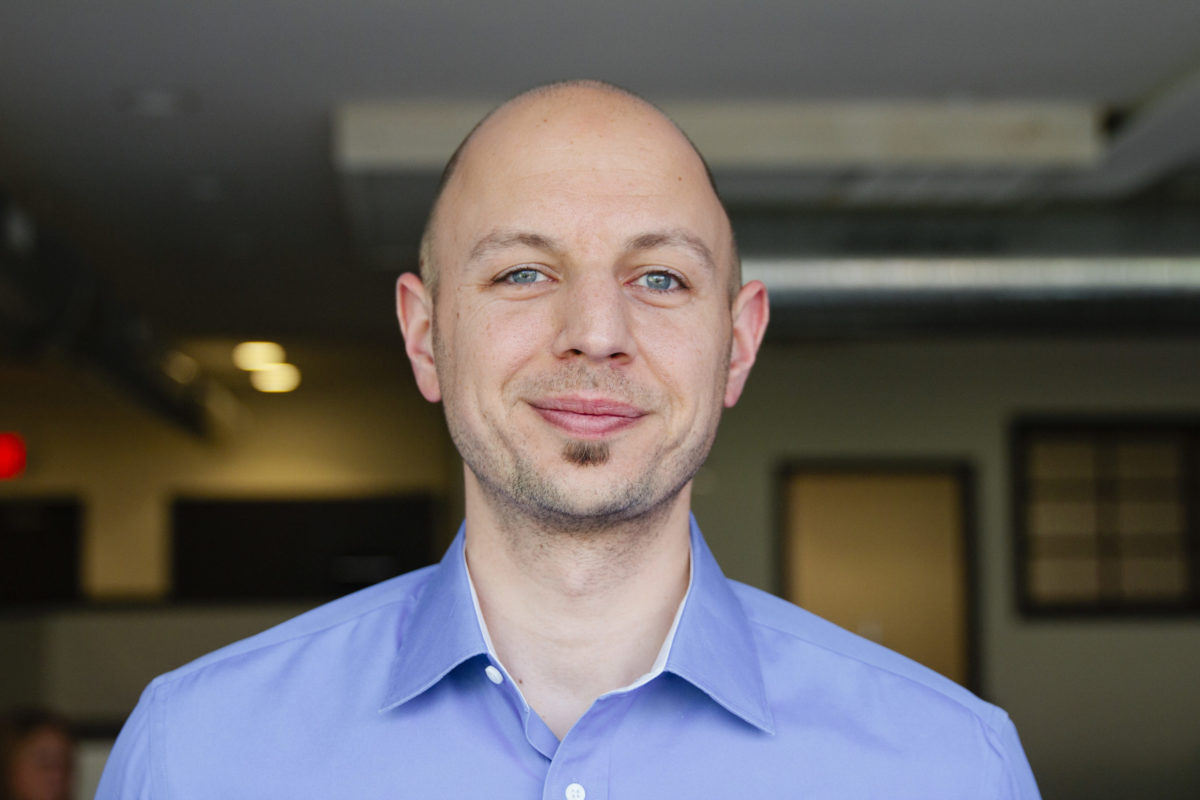
This is How I Got Here, a series where we chart the career journeys of technologists. Want to tell your story? Get in touch.
As someone who grew up playing video games in the ’90s, HealthVerity Chief Technology Officer John Cappiello enjoys talking about one person to illustrate how technology continues to live on through time: John Carmack, who cofounded iconic game maker id Software and later became Oculus VR’s CTO.
Carmack’s company made games like Doom and Quake — “but also developed techniques for the first 3D graphics for games that were capable on lesser computers,” Cappiello said. “He’s still relevant in that context even if his name isn’t relevant to anyone.”
Carmack shaped how Cappiello views his own work in tech, especially in maintaining a transferrable skill set and helping others learn what work they love doing.
The former adtech pro and Start Philly cofounder has been leading HealthVerity’s engineering team and its tech platform for six years. In the past year or so, the Center City-based maker of a privacy-minded data marketplace for the pharma and insurance industries has tripled its office space, doubled down on some hiring that was sped up due to demand because of the pandemic, and last summer acquired cloud-based drug rebate company Curisium. In the fall, the company also announced a research collaboration with the FDA to support COVID-19 clinical study and treatment opportunities.
Cappiello considers himself fortunate to have had access to a computer as a kid and told Technical.ly he remembers being fascinated by the internet when he got dial-up access. Having positive role models who owned businesses made a difference for him, but even as a kid tinkering with computers, he didn’t imagine a career in tech.
“I don’t think I would’ve realize what a career in tech would’ve been way back then,” he said.
Today, at HealthVerity, Cappiello works to scale and mentor his team, continuously identify gaps in the company and figure out where there are hiring needs.
After attending the University of Maryland, Cappiello’s variety of tech experiences have uniquely prepared him for his current role. Working in customer and tech support early in his career provided him with the savvy and understanding of how products and systems enhance the way in which people get things done. Later, as a full-time software developer, he frequently spoke with clients on what worked for them and what didn’t.
As Cappiello developed his skill set and moved on to new challenges, he learned more about leadership and using his tech skills to help others. Working directly with clients provided him with insights on how to better manage processes and make changes to products that helped him become a sharper leader and a better listener.
While his role may be as an executive, he remains passionate about the technology itself. Reading and tinkering with tech on his own satisfies his appetite for innovation. With the industry evolving quickly, remaining informed about the latest trends can also support the work he does at HealthVerity. Maintaining a broad picture of what is happening across your organization is a major part of achieving company goals and growing a career in tech, he said.
Looking back on his career, Cappiello said that keeping a broad vision of what interested him and being open to different possibilities helped shape his journey. Today, he encourages junior employees to do the same.
“You have a vague sense of something you’d like to do, but what you envision and hope you’d be doing isn’t the same thing,” he said. “But [the path itself] changes.”
Cappiello also volunteers with tech bootcamp Tech Elevator and believes that people in non-tech spaces can find viable careers in tech — and that a background in computer science is not necessary to do it. He joked that while he remembered taking linear algebra as a student, it isn’t an essential part of many tech roles.
“Many of the best developers I know majored in religion and philosophy,” he said. “[A tech background] couldn’t hurt, but it’s not a requirement necessarily. Generally, college education is not required to attain a large amount of technology roles.”
As Cappiello continues to support technologists at his organization and emerging ones in Tech Elevator, keeping a broad focus and living in the moment helps him succeed. Maybe one day he can look back on his career as wistfully as John Carmack.
Michael Butler is a 2020-2022 corps member for Report for America, an initiative of The Groundtruth Project that pairs young journalists with local newsrooms. This position is supported by the Lenfest Institute for Journalism.Join the conversation!
Find news, events, jobs and people who share your interests on Technical.ly's open community Slack

Philly daily roundup: Closed hospital into tech hub; Pew State of the City; PHL Open for Business

Philly daily roundup: A better coffee supply chain; Philly Tech Week returns; Apply to Pennovation Accelerator

Philly daily roundup: Startups want office culture; New Venture Lab cohort; Penn Med's new AI leader


